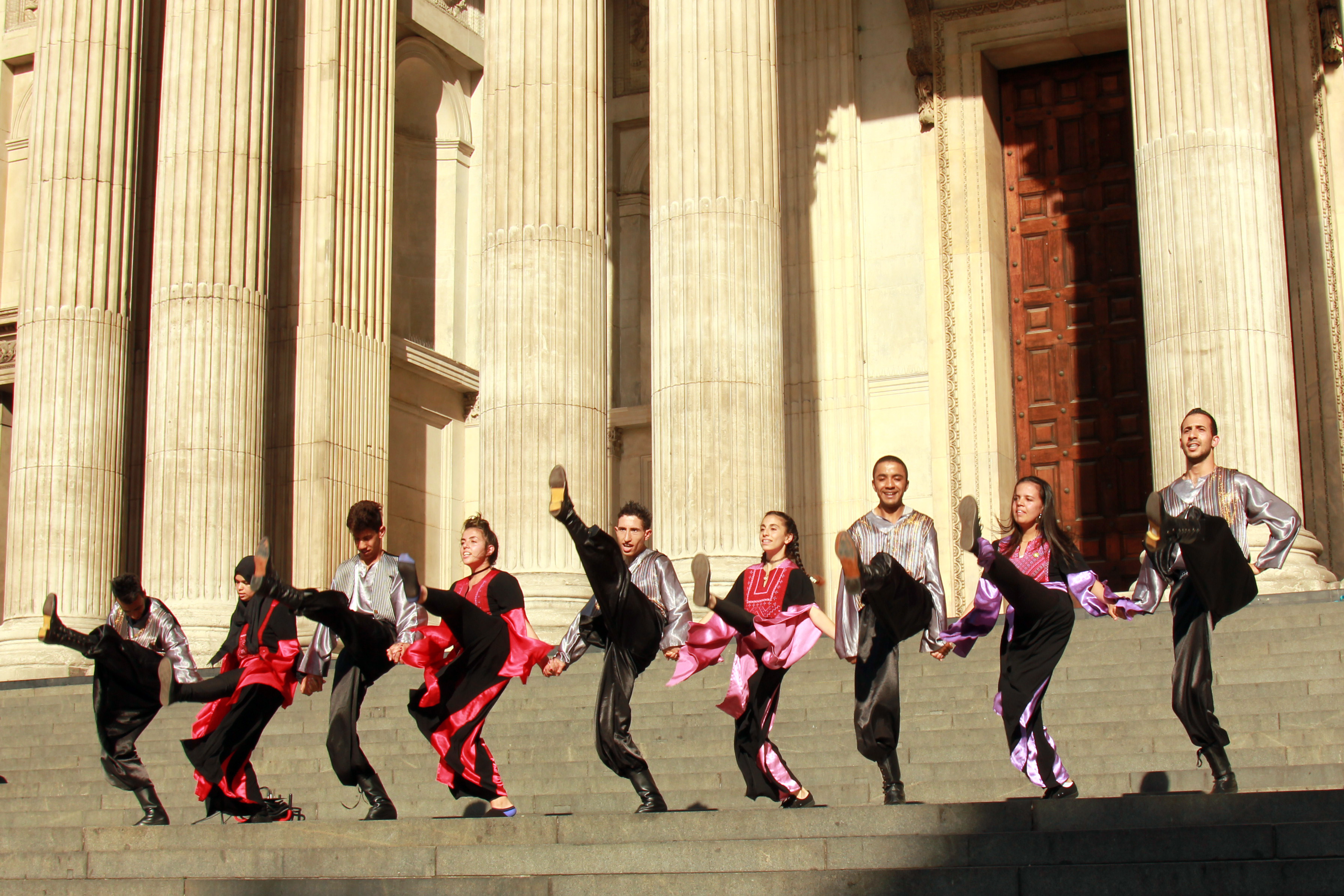The Diocese of Rochester Poverty and Hope Appeal is our annual fundraising opportunity to express our Christian belief in justice for the poor.
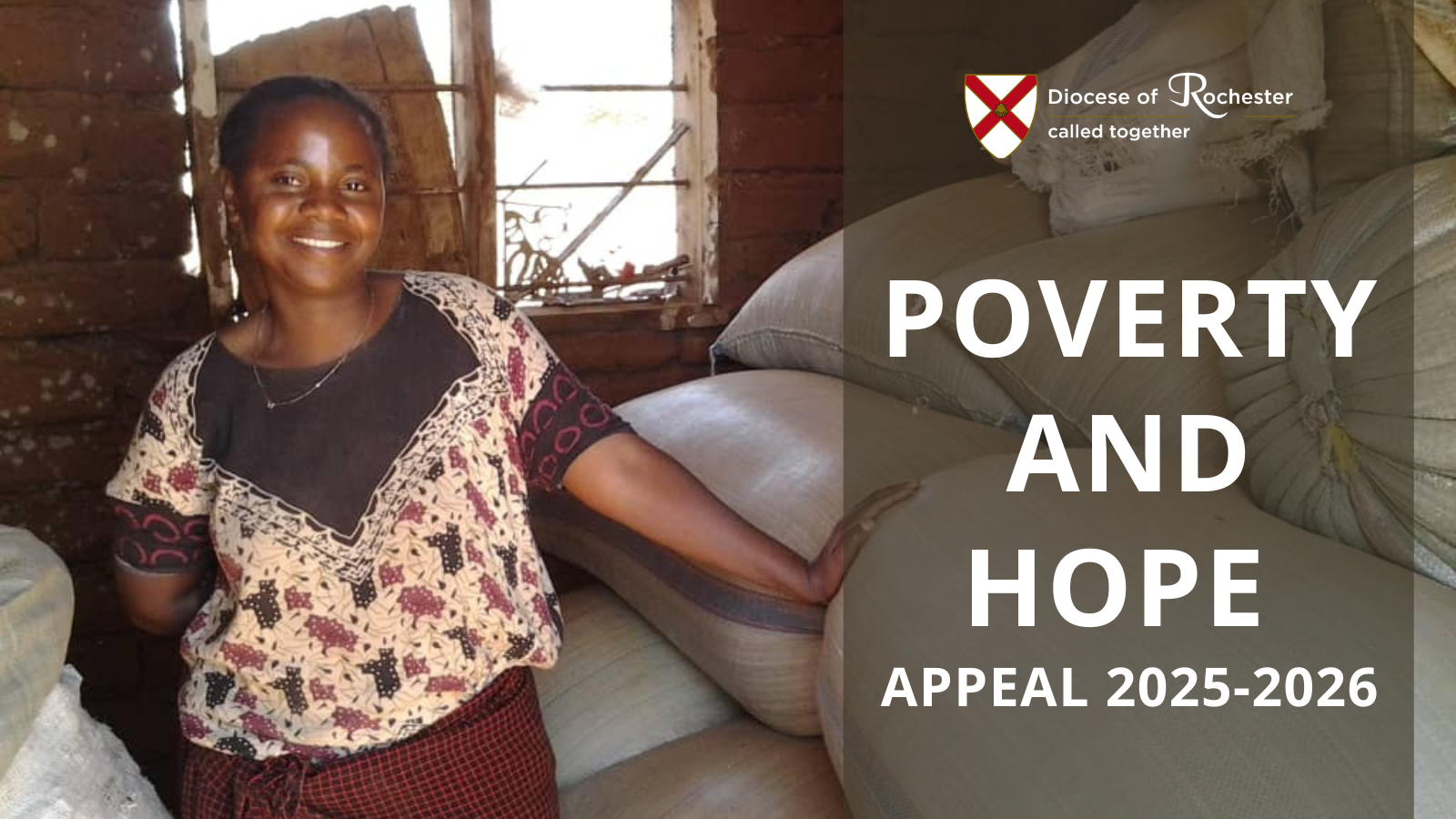
Since 1977, the Rochester Diocese has, through this annual appeal, helped meet the most basic needs that all of God’s children deserve: a safe place to live, food to eat, and a way to something better.
On this page you can find out about:
The Poverty and Hope Appeal
Projects supported
Making a donation
Spreading the word
The Poverty and Hope Appeal
For more than four decades, this annual Appeal has been investing modest amounts in life-changing work, and sharing God's blessings around the world.
With wars, natural disasters, and drastic cuts to governments’ aid spending, the world feels like a dark place now, but we can and must provide some light in the darkness.
"Poverty and Hope is a diocesan appeal that acts like an antidote to hang-wringing despair. It helps to restore self-sufficiency to people who long for this.
The saying ‘every little helps’ is no cliché here, it can save individual lives. Please give as kindly and generously as you can!"
Bishop Simon Burton-Jones
Watch a short message from Bishop Simon Burton-Jones, the Bishop of Tonbridge, about the Poverty and Hope Appeal. (Download a transcript)
Projects supported
While we can only make a small contribution in response to a huge worldwide challenge, we increase the impact of the Appeal by working through long-term trusted partners.
Through these seven partners, which include large Christian international charities like Christian Aid, CMS, and USPG, the Appeal supports projects in:
- Tanzania and Zimbabwe
- Brazil
- The Caribbean
- Myanmar
- Palestine
Read more about all the projects below.
Tanzania and Zimbabwe
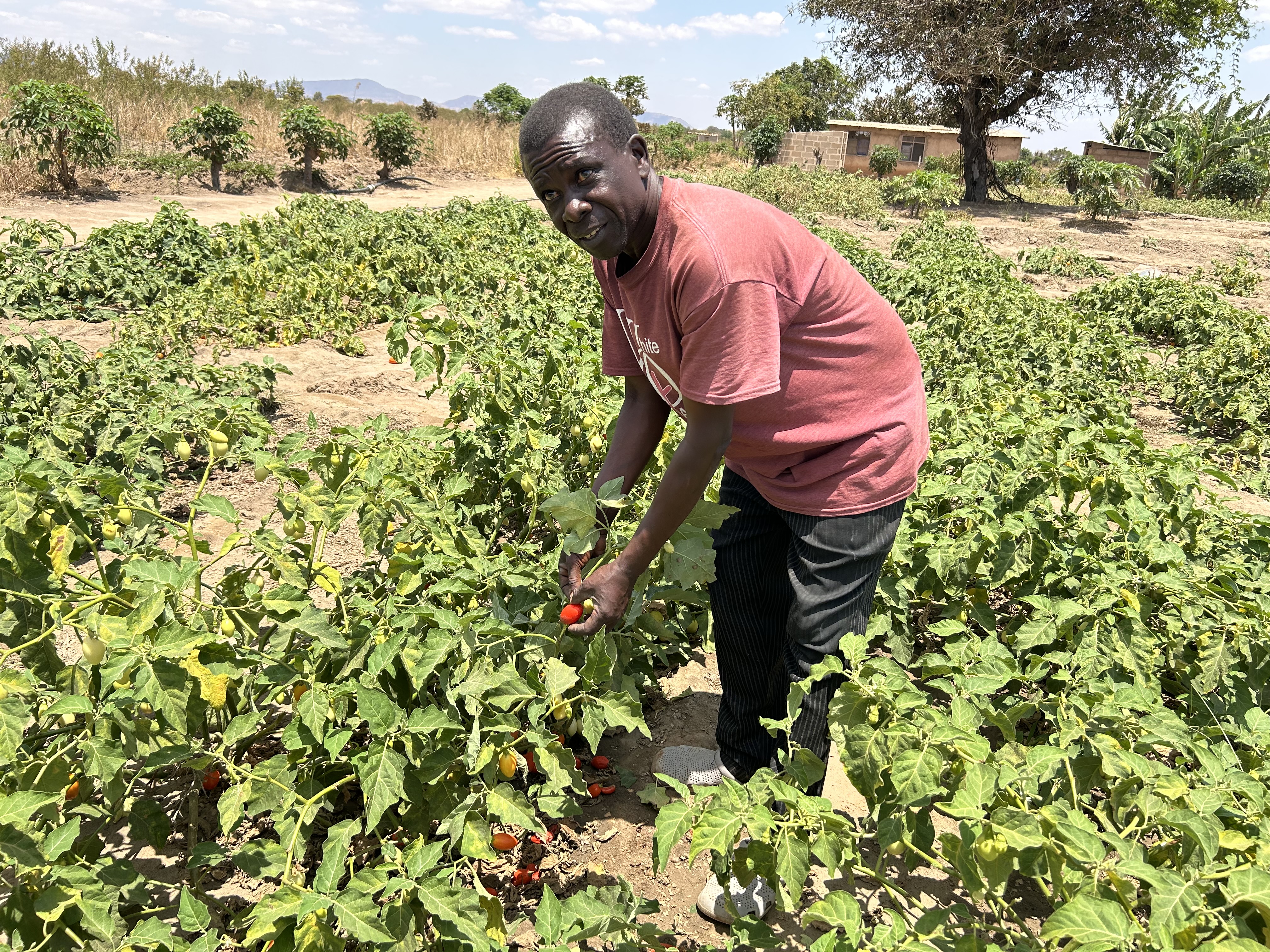
In Rochester’s three Companion Dioceses in Africa (Kondoa and Mpwapwa in Tanzania, and Harare in Zimbabwe) there have been droughts of varying intensity in four of the last five years.
With weather patterns disrupted by climate change, food and water security are increasingly fragile. Furthermore, recent drastic cuts in international aid spending have made things much worse.
Small projects supported by the Poverty and Hope Appeal, involving irrigation, drought-resistant seeds, diversification, training in improved farming methods, and small loan schemes, can bring significant, sustainable benefits.
When churches in Rochester Diocese joined with brother and sisters in Kondoa Diocese in Tanzania earlier this year in prayer, we prayed together for “good rains” – just enough to water the ground, but not a deluge to destroy the crop.
Since 2022 over 40% of proceeds from our annual Appeals have been used to help farming communities in Tanzania (Kondoa and Mpwapwa) and Zimbabwe (Harare).
In Kondoa, the main focus of work has been on training in improved farming methods and this year funds will go towards the production and distribution of drought-resistant seeds.
In Mpwapwa initial funding went to solar powering of a repaired borehole and subsequently to micro-irrigation projects and the establishment of a loan fund for purchasing farm equipment.
In Harare, four parishes and associated schools took part in a pilot project to diversify their incomes through bee-keeping and honey production.
Earlier this year, drought and economic crisis required help in establishing an emergency feeding programme in primary schools. The important feature of all these efforts is that the initial injection of a modest amount of cash can bring substantial benefits.
Peter Kettle : Poverty and Hope Appeal Coordinator
Palestine: Amos Trust and Alrowwad
Amos Trust turns 40 this year and for much of that time has been working in the West Bank and Gaza with grassroots organisations.
This year, the Appeal will focus on their work with Alrowwad in Aida Refugee Camp, Bethlehem - Alrowwad believes in the cultivation of creativity as an alternative to violence in the fight against injustice.
They call this methodology ‘Beautiful Resistance’.
Founded in 1998, Alrowwad Cultural and Arts Society serves as a beacon of hope and inspiration for marginalised Palestinians. Its aim is to develop the community’s artistic, creative and academic abilities, using art, dance, theatre, media and computer training. Catering to children, youth, and women, Alrowwad is deeply embedded within the local community and runs regular children’s camps.
The work consists of 6 programmes: art, education, media, women, health and environment and vocational training. In addition to providing free pioneering training, equipment and supportive education, the centre runs an outreach programme to marginalised villages and refugee camps in the West Bank, where they partner with nurseries, schools and cooperatives to perform, exhibit and provide training and resources as needed.
Training programmes have also been developed to acknowledge and support the specific needs of women, including computer training, job creation projects, fitness and empowerment programmes. These help to reinforce the value of the women’s role in the community by improving their self-confidence and encouraging their creativity. At this difficult time they are also providing relief support for those in need in the Aida camp.
Amos Trust hopes to bring 9 young people from Alrowwad to the UK for their Christmas tour. The young people will perform Dabke (traditional dance) and share their stories
Katie Hagley : Head of Community Engagement
Latin America and Caribbean: Christian Aid - Bringing Hope in Honduras’ Dry Corridor
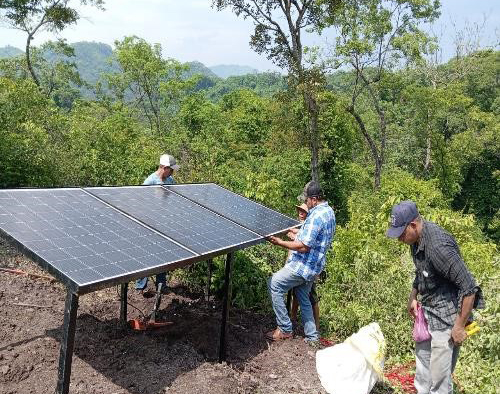
Since 2024 Poverty and Hope has been supporting the ’From Violence to Peace Project’, a Christian Aid peacebuilding initiative, which operates across five countries, spanning the Dominican Republic, Haiti, El Salvador, Honduras, and Guatemala.
In Latin America and the Caribbean, life is rarely simple. Migration pressures strain communities, and the climate crisis brings longer droughts, harsher storms, and unpredictable seasons. Nowhere is this felt more deeply than in Honduras’ “Dry Corridor,” where farming families battle daily to put food on the table.
With the support of the Poverty and Hope Appeal, Christian Aid joined hands with our local partners to act before hunger could take hold. Together, we reached 100 families — more than 500 people, over half of them led by women — and worked to secure their food supplies before the dry season arrived.
We worked with the community to ensure that solar-powered drip irrigation revived five hectares of farmland. Families saw maize, beans, and vegetables thriving, with the promise of three harvests a year instead of one. Communities that had lived season to season now had grain banks capable of storing twelve tons of food, safeguarding it for the months when nothing grows.
Training sessions brought knowledge in agroecology, water conservation, and post-harvest storage, ensuring that the gains of today would last into tomorrow. Meanwhile, twenty-four community-run weather stations began sending early warnings of storms and droughts, giving families precious time to prepare.
When Storm Albert and Hurricane Beryl arrived, bringing torrential rains and floods, the damage was minimal — crop losses were less than 20%. Preparation had turned vulnerability into resilience.
For these communities, water is more than a resource. It is survival, stability, and the promise of a future where children grow up nourished and hopeful.
Let’s continue to pray, act, and give towards this vital cause.
Grace Kariuki : British Church Relations Officer, Christian Aid
Brazil: CMS – Sharing the Good News in prisons
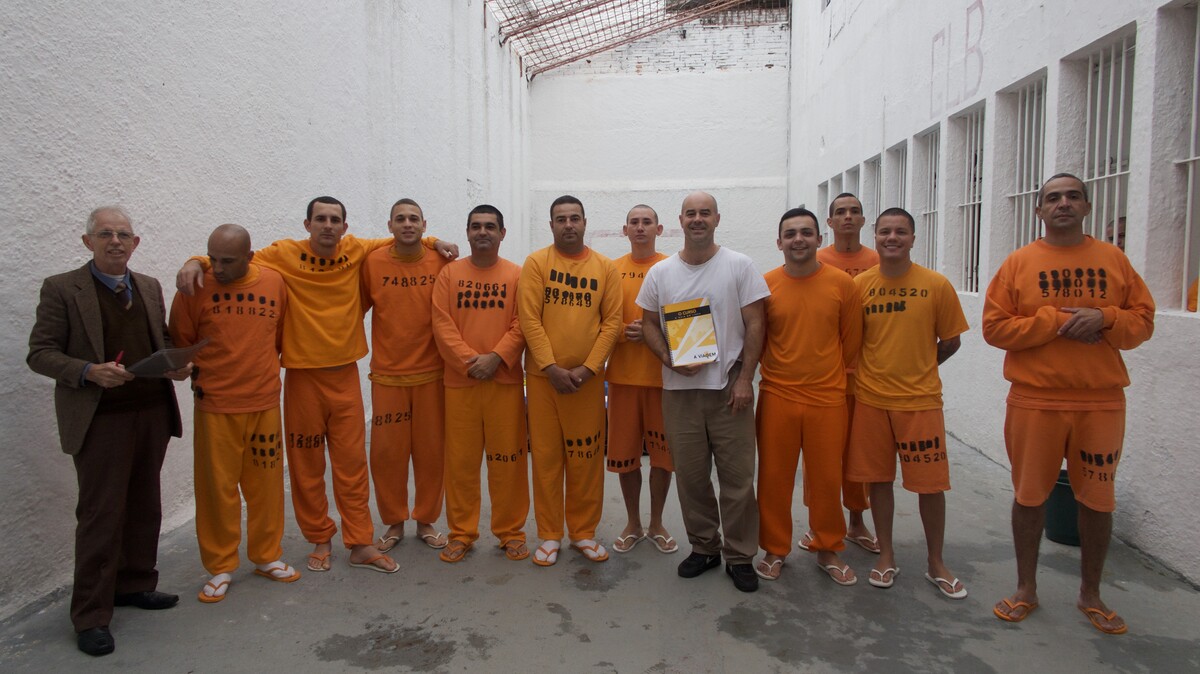
Mission partners Andy and Kati Walsh are sharing the gospel and discipling people living behind bars in Florianópolis, Brazil.
God is powerfully at work, particularly in the men’s prisons, which are notorious for their rough conditions.
Andy and his team have been running a 12-week discipleship course for inmates over the past couple of years.
The course focuses on understanding the gospel and how it can prepare inmates for life after release. Since they began running the course, they have seen huge numbers of men become followers of Jesus: 150 men were baptised in 2023, and 170 in 2024.
One man said, “This course showed me the true Christ… I learned about sin, but more importantly, about how to be redeemed by God. After this course, I can confidently affirm that I am a Christian!”
The next step: planting churches in prisons.
Wanting to help inmates grow in their faith and share it with others without the need of so much input from outside, Andy’s focus is now shifting to planting churches in several of the local prisons.
They have already received support from the senior regional director overseeing the prisons, and they are now looking to secure the cooperation of individual prison governors. This year Andy and his team want to begin with a pilot initiative, consisting of a small gathering in a prison courtyard.
Following a successful pilot, they hope that more prison governors will give their permission and that more permanent churches can start to take shape, creating a nurturing environment for Christians who are still young in their faith. CMS would be incredibly grateful for your support for Andy as he seeks to plant a network of church communities to help Christian inmates grow in their faith, and to boldly share it with others.
Jon Langley: Trusts and Key Relationships Lead
Myanmar: USPG - Rural Education and Earthquake Relief
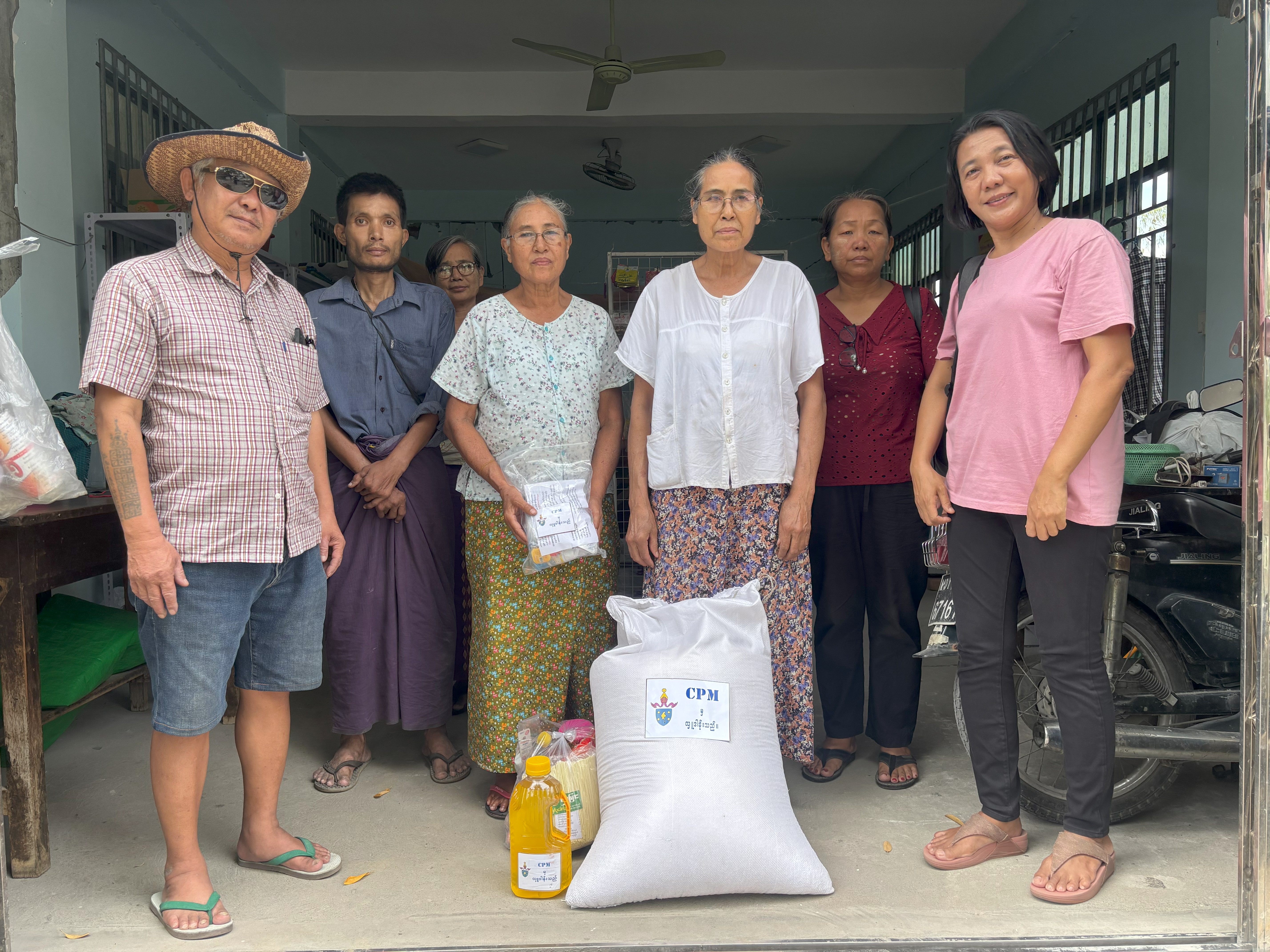
The Church of the Province of Myanmar continues to run its education programme in every diocese.
The education programme gives the children an opportunity to be in a safe space with adequate shelter and food during the school day.
It keeps them off the streets where there is danger from various local militia groups and violent clashes with the military.
Many young people are leaving Myanmar for neighbouring countries to avoid military conscription when they turn 18. Staying in full-time education gives them opportunities when they are older to go on to higher education or find work in other countries to support their families.
On 28 March 2025, a devastating earthquake hit Myanmar, causing significant damage to homes, infrastructure, and public buildings, including hospitals, schools, and churches. Tens of thousands have been displaced, with many living in temporary shelters or sleeping outdoors due to damaged homes.
The earthquake has worsened an already difficult situation in Myanmar with instability, conflict, and widespread displacement. Due to the military restrictions and danger from local militia groups, it is hard for people to move around the country, so access to some of the worst-affected areas has been limited, hindering relief efforts.
Many communities are struggling with food shortages, and the earthquake has exacerbated existing food insecurity, with millions at risk. Despite the earthquake hitting so many months ago, there are still frequent, violent aftershocks, which create further uncertainty and fear, as well as disrupting efforts to rebuild.
The ongoing conflict further complicates the situation and adds to the challenges faced by affected communities.
The church is also running earthquake relief programmes in the worst-affected dioceses, providing food packages and shelter for displaced people or families struggling with food insecurity.
In Mandalay Diocese, Archdeacon Joseph Yin Oo and a group of volunteers are bringing household relief packages to families in their diocese, which includes staples such as fresh water, rice, beans and cooking oil.
Janine Goddard: Senior Fundraising Manager
Making a donation
We know times are tough right now, especially due to the rising cost of living. However, if you are able, please support the Poverty and Hope Appeal in whatever way you can. Thank you.
Other ways to donate
E-banking: You can make a donation by e-banking to the following account: Rochester Diocesan Society and Board of Finance, sort code 20-54-29, account 90760099. In the reference box, please put P&H so we can correctly allocate the money to the Poverty and Hope Appeal, and something to identify your church (or nothing if you wish your donation to be given anonymously).
Send a cheque: please make out to ‘Rochester DBF’ with ‘Poverty and Hope Appeal’ on the back and send them with any completed gift aid envelopes to Finance Team Rochester Diocese, St Nicholas Church, Boley Hill, Rochester ME1 1SL.
Add giftaid: You may increase the value of your giving by gift-aiding your donation. This allows us to reclaim the tax relating to your gift. Please download and fill in this form and return it with your donation to the Rochester Finance Team at: Finance Team Rochester Diocese, St Nicholas Church, Boley Hill, Rochester ME1 1SL.
Thank you.
Spread the word
Please help spread the word about the Appeal in your congregations and communities to encourage as many donations as possible. Below are lots of resources to help you:
- Watch on Youtube or Download a recorded presentation - ideal for a Harvest Service or Supper, or any church gathering.
- A message from Bishop Simon (pdf transcript of video)
- Posters (A4)
- Social media card
- Suggested magazine and newsletter text
- Printable giving information sheet
- QR code
Why not invite someone to come and talk about Poverty and Hope in your church? Please email Peter Kettle, Poverty and Hope Coordinator, on: povertyandhope@gmail.com or call 01474 813 632.
Key Contacts
Peter KettlePoverty and Hope Appeal Coordinator |
